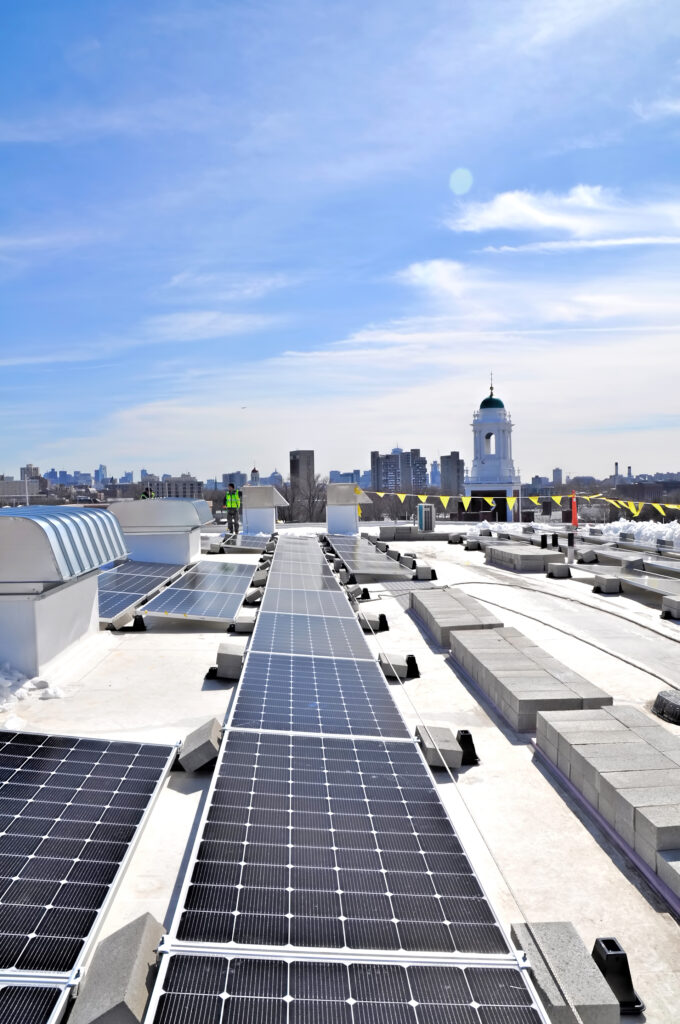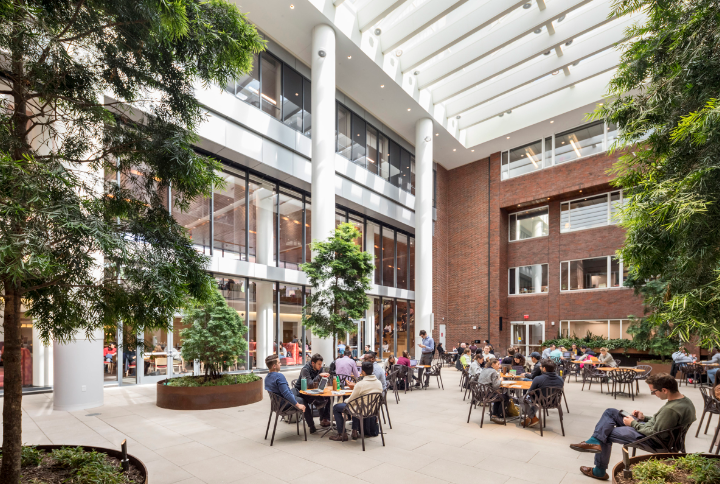Harvard Kennedy School of Government
hub.hks.harvard.edu/campus-operations?p=SustainabilityHKS’s Sustainability Commitment
The Kennedy School’s commitment to sustainability began with an active grassroots effort and is now institutionalized with a School-specific Sustainability Plan that was adapted from the University’s Sustainability Plan. The Harvard Kennedy School’s sustainability strategy is grounded in scholarship and community engagement, integrating research, teaching, governance, and culture. HKS seeks to cultivate impactful programs and pilot new strategies for the University with a focus on climate, health, and equity.
HKS is committed to incorporating sustainability throughout its operations and policies. Projects include generating renewable energy and reducing energy and fossil fuel use, with a special focus on Scope 3 emissions reduction including transportation and air travel, sustainable events and reducing food waste, and reducing our plastic footprint.
Sample of HKS Project Activities:

430 MWh

2+ tons recycled

100s of pounds of food shared

- HKS has a 61.2 k solar system installed on the rooftops of the Ofer Building, the Rubenstein Building, and the Wexner Building to generate renewable energy on campus. As of May 2023, the system’s 153 panels have generated more than 430 MWh, equivalent to avoiding nearly 705,00 pounds of avoided emissions.
- HKS launched Harvard’s first plastic bag recycling program, which is now diverting more than two tons of plastic waste across Harvard every year from our waste streams to be recycled into new products.
- HKS hosts the Food Chain, a food waste diversion program open to anyone in the Kennedy School community to be notified after events are over to share leftover food, reduce food waste, and reduce food insecurity inside our community. The program shares out hundreds of pounds of food each year among community members that would otherwise go into our compost waste streams. Kennedy School members can sign up here.
- The Sustainability Leadership Council has been working to reduce flight-related emissions generated from our faculty, student, and staff air travel by helping people fly less, fly better, and offset what cannot be avoided. Learn more!

The HKS Sustainability Leadership Council
The Sustainability Leadership Council (SLC) is appointed by the Dean of the Harvard Kennedy School as a senior leadership body tasked with making strategic recommendations to the Dean to prioritize and fund the HKS Sustainability Plan and to drive the sustainability agenda forward on HKS campus in coordination with Harvard University and the Office for Sustainability.
The role of the SLC is to:
- Explore living laboratory connections that could integrate the real-world challenges of sustainability into the Kennedy School experience and use the campus and the local community to pilot innovative research and projects
- Share knowledge, experience, and feedback on strategies and projects and how they may interact and influence many aspects of campus operations and life,
- Regularly review the HKS Sustainability Plan and recommend strategic updates,
- Monitor and guide the implementation of the Sustainability Plan and supporting alignment between the HKS Sustainability Plan and University Sustainability Goals,
- Recommend specific projects and budget requests to the Dean,
- Facilitate coordination of sustainability groups, activities, and events at HKS, including the Green Team and SEEPIC, thereby fostering strong awareness and engagement.
Climate, Energy, and the Environment Professional Interest Council
The Climate, Energy, and Environment Professional Interest Council (CEEPIC) provides a focused community for Harvard Kennedy students to explore and engage with the complex challenges of the global climate crisis. Each semester, CEEPIC organizes a variety of events related to climate, energy, and the environment that bring students together with faculty, policymakers, and subject matter experts.
CEEPIC also works in partnership with the Sustainability Leadership Council to identify opportunities to integrate conversations about climate, energy, and the environment as core parts of the HKS curricula and student experience.
CEEPIC events are open to HKS students and the wider Harvard community. Our members’ interests span many different policy domains, and we strive to ensure the diversity of perspectives, expertise, and lived experiences among our members is reflected in our programming.
2022-2023 Co-Chairs:
- Gray Bender, MPP
- Maya Vishwanath, MPP
- Aneesa Andrabi, MPP, Communications Director
Finance Officers:
- Mahabub Rahman
- Louis Guerin
Events Sub-Committee:
- Richa Chaturvedi
- William Jensen Diaz
- Roman Gaus
- Karan Takhar
- Karina Val, Entrepreneurship Director
- Leonie Schoeller
Curriculum Liasons
- Tine Hertz
- Rushabh Sanghvi
- Alibek Nurbekov, MC/MPA Representative
Questions about sustainability at HKS?